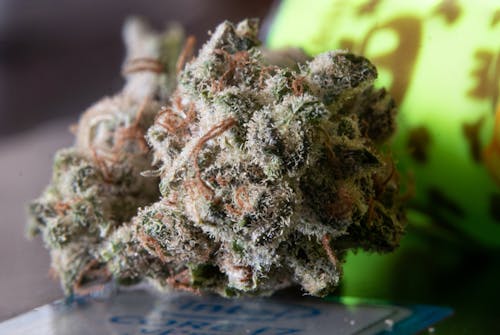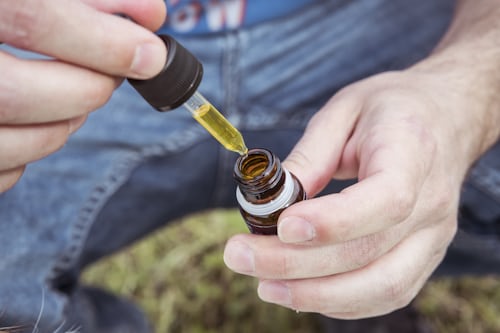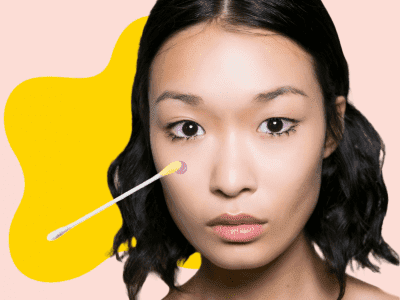
Cannabidiol, commonly known as CBD, has many health benefits. Being one of the chemical compounds of marijuana, CBD has gained increased popularity, especially because many states continue to legalize its use.
In this post, we shall look at the fantastic CBD effects on your body. But before that,
What is CBD?
CBD products have become increasingly popular in Canada and the US, with Europe and other countries following suit. Even so, like any other new product, a lot of misinformation surrounds the use and benefits of CBD. As such, you must understand what CBD is and what it isn’t.
CBD is a chemical compound that is naturally found in the cannabis plant. CBD is among the 108 cannabinoids found in cannabis.
Contrary to popular belief, CBD does not provide a high effect. Yes, not all cannabinoids have psychedelic effects. While most people confuse CBD with THC, the truth is there’s a vast difference between the two.
THC or tetrahydrocannabinol is responsible for the high effect that marijuana users experience. On the other hand, CBD has only therapeutic effects. Although CBD is not regulated by the food and Drug Administration (FDA), it’s safe to use.
CBD vs. THC

To help you better understand CBD, let’s look at the difference between CBD and THC. As earlier stated, there are notable differences between CBD and THC, including:
Chemical Structure
While THC and CBD have the same molecular structure, atoms arrangement is entirely different. The hydrogen, carbon, and oxygen atoms are arranged in different orders, providing an entirely different effect on the body.
The CBD and THC work by interacting with your body’s endocannabinoids. As a result of these interactions, the neurotransmitters are released in the brain. These neurotransmitters send messages to the brain and play a significant role in determining how we sleep, feel pain, suffer stress, immune system response, etc.
Psychoactive Effect
Although CBD and THC have similar chemical structures, they provide different psychoactive effects. As earlier stated, CBD is a non-psychoactive compound. It can help reduce anxiety, pain, and insomnia. On the other hand, THC will make you high.
Besides, THC will bind with your body’s CB1 receptors, providing a sense of euphoria, while CBD interferes with THC binding to reduce its psychoactive effects.
Medical Effectiveness
Although THC and CBD provide different psychoactive effects, they have similar therapeutic benefits, meaning they can offer relief from several issues. For instance, CBD can help solve various health problems, including:
- Inflammation
- Epilepsy and seizures
- Nausea and migraines
- Depression and anxiety
- Mental disorders
- Etc.
On the other hand, THC can offer relief from various conditions, including:
- Glaucoma
- Insomnia
- Anxiety
- Pain and muscle spasticity
- Nausea and low appetite
How Does CBD Work?

CBD works by interacting with the body’s endocannabinoid system. It affects the body’s regulatory mechanism, which is made up of endocannabinoids (naturally occurring cannabis-like molecules).
These endocannabinoids act like neurotransmitters, transferring signals all over the body to maintain homeostasis. CBD interacts with CB2 receptors to produce more endocannabinoids, leading to reduced pain, anxiety, and inflammation.
In other words, CBD interacts with the human body through the endocannabinoid system to provide different impacts on the body and mind.
Amazing CBD Effects on the Body
The non-psychoactive CBD properties make it ideal for therapeutic use. To that end, here are some fantastic CBD effects that you can’t ignore:
1. CBD May Make You Less Anxious
Although CBD is non-psychoactive, it can act on your emotional well-being. However, CBD effects are not intoxicating like THC.
CBD research has shown that CBD can relieve generalized anxiety, social anxiety, panic disorder, obsessive-compulsive disorder, and post-traumatic stress disorder.
A study regarding the CBD’s anxiolytic effects was conducted in 2019. In this study published in the Brazilian Journal of Psychiatry, CBD oil or placebo was administered to a group of men before speaking in a public event.
The anxiety levels were evaluated using measures like heart rate, blood pressure, etc. The study results showed that men who took CBD oil exhibited less anxiety than those who took a placebo.
2. CBD May Interfere with Your Sleep
Since taking CBD oil can make you less anxious, most people think it can also help improve a night’s sleep. We often fail to sleep due to stress, depression, or even pain, and CBD can minimize these issues.
However, it’s worth noting that you’ll need to take higher doses of CBD to experience sleep-inducing effects, which could interfere with your sleep or cause jitteriness. If you’ve tried other medication and haven’t worked, you may want to try CBD oil. Talk to your doctor or cannabis expert to help determine the best CBD dosage for you.
3. CBD Could Interact with Other Medications Negatively
Although CBD offers many health benefits, it can also interact with other medications, posing potential dangers to your health. This is especially the case for older people or those taking multiple medications for various conditions.
One notable case where CBD is not recommended is if a person is taking warfarin to prevent and treat blood clots. Essentially, CBD inhibits CYP450 enzymes, which increases the amount of warfarin absorbed by your body. This can have far-reaching effects on your body and cause complications such as hemorrhage or excessive bleeding.
4. CBD Can Cause Nausea (Depending On Your Use)

Besides jitteriness and sleep interference, high CBD amounts can cause nausea. Research conducted has shown that CBD can interfere with the working of certain chemicals in the intestine, making them unable to break down certain drugs.
Since the US Food and Drug Administration (FDA) does not regulate CBD use, it can be challenging to know the right CBD dose for you. Taking an excessive amount of CBD can cause unpleasant side effects. For better results, consider starting small and increase gradually.
5. CBD Use May Lead to Fewer Gastrointestinal Issues
While more research is needed, CBD has shown to help people with gastroesophageal disease (GERD).
According to one review, cannabinoid receptor antagonists can help reduce relaxation in the lower esophageal sphincter. Acid reflux often occurs when the lower esophageal sphincter relaxes too much. As such, CBD can help reduce instances of acid reflux alongside other GERD symptoms.
6. CBD Can Help Alleviate Cancer-Related Symptoms
Another significant CBD benefit is that it can affect symptoms of cancer. Studies CBD studies have shown that CBD can help treat vomiting and nausea associated with cancer chemotherapy.
Furthermore, smoked or vaporized CBD can help treat neuropathic pain as a result of damaged nerves. Cancer patients who took CBD oil did not need frequent pain medicine.
In recent studies, scientists have discovered that CBD and other cannabinoids can help inhibit cancer cells’ growth.
Even so, more studies and trials are required to determine how cannabinoids can control and cure cancer. While using CBD to treat cancer is safe, you should not avoid or delay conventional medical care for cancer, as it may have far-reaching effects.
7. CBD Can Help the Heart
Inflammation is a common symptom of many diseases, including high blood pressure, heart disease, and stroke. With evidence showing that CBD has anti-inflammatory properties, it means that CBD can help protect the heart.
A study conducted in rats and mice have revealed that CBD can have a protective effect on the heart. Research on the CBD effects on various health conditions in humans, including heart and circulatory diseases, needs to be done.
Although the studies are at an early stage, it’s evident that CBD can help the heart. If you’re thinking about incorporating CBD to boost your heart health, talk to your doctor so they can advise on your existing treatment.
8. CBD Can Help With Drug Addiction

CBD oil has also shown positive results for people with drug addiction. According to a 2015 study published in Substance Abuse, CBD can help treat people with cocaine, opioid, or psychostimulant addiction.
However, it’s worth noting that the CBD effect on each type of addiction is different. For instance, opioid users showed less impact in the absence of THC. On the other hand, cocaine, psychostimulant, and methamphetamine users showed more effects in minimizing withdrawal symptoms after taking CBD.
9. CBD is Effective in Treating Seizures
Dravet and Lennox-Gastaut syndrome are rare genetic disorders in children but can have far-reaching effects. The FDA approved Epidiolex for the treatment of seizures caused by these issues in children under two years in 2018.
Some evidence suggests that CBD can interact with other seizure medications like Onfi, making them more effective. Besides that, more research is required to determine the effectiveness of CBD in treating seizures.
10. Antibacterial Properties
Our list of the CBD effects on the body would not be complete without talking about CBD’s antibacterial properties. CBD, alongside other cannabinoids, has been shown to treat strains of bacteria resistant to drugs.
However, it’s essential to note that these tests were done on rats and so it isn’t clear how antibacterial properties of CBD and other cannabinoids could affect humans. Besides that, researchers believe that CBD can help inhibit T-cell proliferation.
Final Thoughts
CBD’s effects on the body are many. Besides the many CBD benefits, users need to learn more about using these fantastic products. It’s also essential to learn about the legality surrounding CBD usage.
Yes, while CBD is legal in many states, it may still be considered illegal in many parts of the country.
If you’re planning to try the amazing CBD effects, it’s essential to understand that not all CBD is created equal. As such, do due diligence to ensure that you get a good and safe CBD product. Also, ensure that you’re taking the right dosage for you regardless of the reason you’re taking it.
This will help minimize possible CBD side effects, including vomiting, nausea, anxiety, dizziness, appetite and mood changes, diarrhea, dry mouth, etc.






